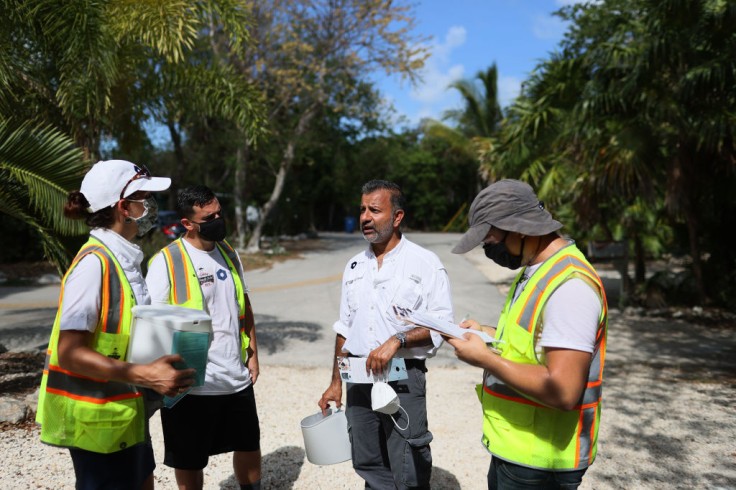
Health Officers in Florida have issued an alert for dengue fever in the Keys following evidence of two residents contracting the virus in the area. The warning comes after the CDC issued a general health alert about a rise in dengue cases across the country.
Rising Cases of Dengue Fever in Southern Florida
The confirmed dengue cases in the Florida Keys were not associated with travel, indicating a notable advancement in the area's public health situation.
Miami-Dade County has encountered cases of dengue that were contracted locally this year, contributing to the rising worry. A notification is sent out when there are two or more confirmed cases of locally acquired infections, leading to intensified mosquito control measures.
Broward Mosquito Control is being proactive by utilizing drones to disperse larvicide granules in inaccessible areas, effectively targeting mosquito larvae before they hatch.
Adriana Toro from Broward Mosquito Control stated that they are aiming to take proactive measures to decrease the adult mosquito population by stopping larvae from developing.
Taking this proactive approach is essential in light of the dengue fever cases that have been documented in Key West. This year, Miami-Dade County has documented 104 cases related to travel and six cases acquired locally.
Broward County has reported 30 cases related to travel, but there have been no cases of local transmission so far.
Broward Mosquito Control coordinates with the CDC to enhance mosquito control activities in regions with reported cases of dengue fever. Toro stated they collaborate with the CDC and intensify spraying in areas with reported dengue cases.
The Aedes aegypti mosquito, which spreads dengue, is frequently seen in residential areas. Health officials recommend that residents remove stagnant water in their homes, as it serves as a breeding ground for mosquitoes.
As per Chalmers Vasquez from Miami-Dade Mosquito Control, residents are urged to check their yards and eliminate any standing water.
Tyler Cheeseman, a landscaper from TJC Landscapes & More, highlighted the significance of dealing with concealed breeding spots. He explained how mosquitoes can breed in any stagnant water, including in pots and bromeliads. The suggested approach is to get rid of stagnant water and take care of plants that hold water, all while following the motto "Fight the Bite, Drain and Cover."
Collaborative Efforts for Mosquito Control
The Florida Department of Health issued a warning after two upper Keys residents were diagnosed with dengue fever. These cases that were acquired locally are part of a bigger pattern, with seven further cases reported in the contiguous United States in 2021. More than 700 cases have been determined to be linked to travel.
The CDC has lately advised healthcare professionals about a rise in dengue cases throughout the Americas, exceeding last year's total with nearly 10 million infections worldwide.
As a result, the Florida Keys Mosquito Control District has increased door- to- door examinations, extended spraying activities, and set up further mosquito traps.
Dengue fever is spread by the Aedes aegypti mosquito, which can suck at any time, raising the chances of transmitting the virus to humans. There's presently no cure for the virus, with symptoms including muscle pain, worried stomach, throwing up, breathing problems, and tiredness. Signs generally manifest within four to ten days following infection, with symptoms present in only about one out of every four individuals.
Florida has the perfect conditions for mosquitoes due to its warm and humid climate, which has been worsened by recent heavy rain. Mosquitoes deposit eggs in or close to stagnant water, and larvae grow into biting insects in one to ten days.
Participation from the community is essential for decreasing mosquito numbers and stopping the spread of dengue fever. Residents can protect themselves and their communities from the dangerous virus by removing breeding grounds and taking preventative actions.
Related Article: Social Security Cost-of-Living Adjustment 2025 Predictions: COLA Rise to 36% for Seniors, Retirees Amid Inflation